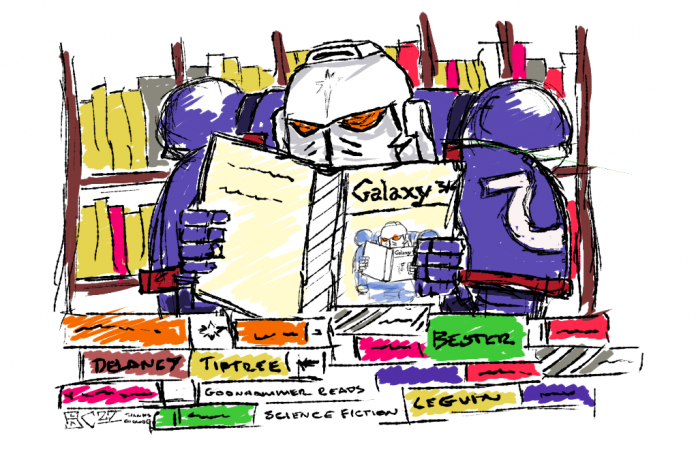Ah! The Moon. Luna. Selene. Mankind’s nearest target. The only extra-planetary thing that humanity has left literal shit strewn about on. That big thing in the sky at night and sometimes the day. However you know it, it’s there. Watching. Waiting.
The Moon has long been a major player in Science Fiction, with hundreds of years of writing obsessed about getting there, perhaps spending some time with some moon men, and coming home. You could voyage there with Jules Verne in the 1860s, or with Cyrano de Bergerac in 1650 (and discuss life with Socrates while there). If there’s an angle that SF writers can take about the moon, they will. Been there. Seen that. Watched the Movie.
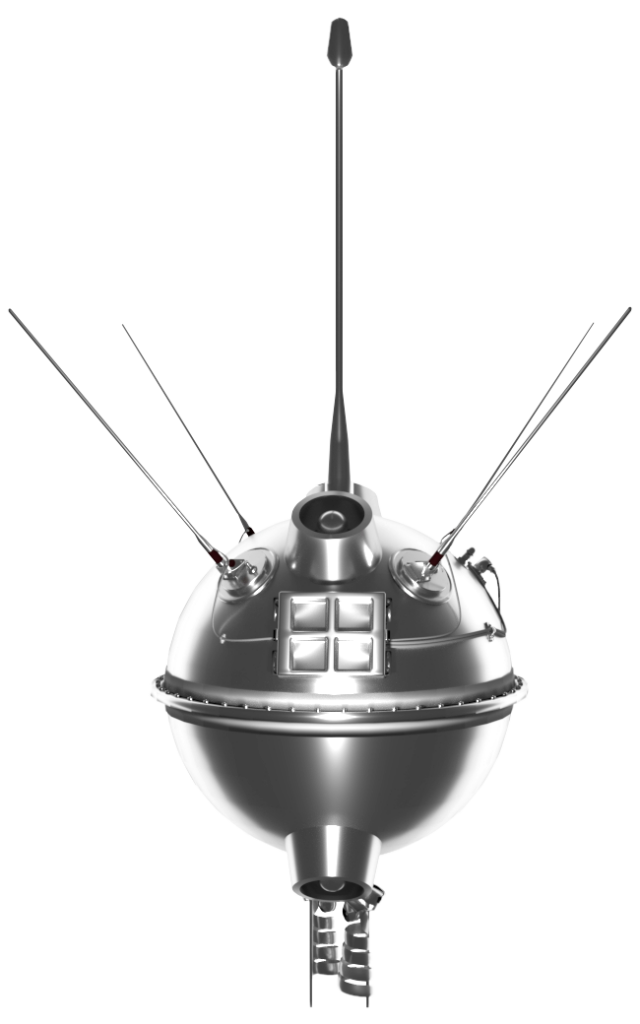
As a result, we’re not going to do straightforward trips to the Moon in this article because the definitive versions have already been written. You can get there via Space Gun (Jules Verne) or Anti-Gravity Device (HG Wells) and both journeys are great. But getting to the Moon hasn’t been science fiction since 1969, though perhaps the idea that the US would spend that much money on something that wasn’t designed solely to produce human misery is indeed unbelievable in the modern day. Instead, we’re going to take up the next phases of Moon Scifi: Living there and delving for secrets.
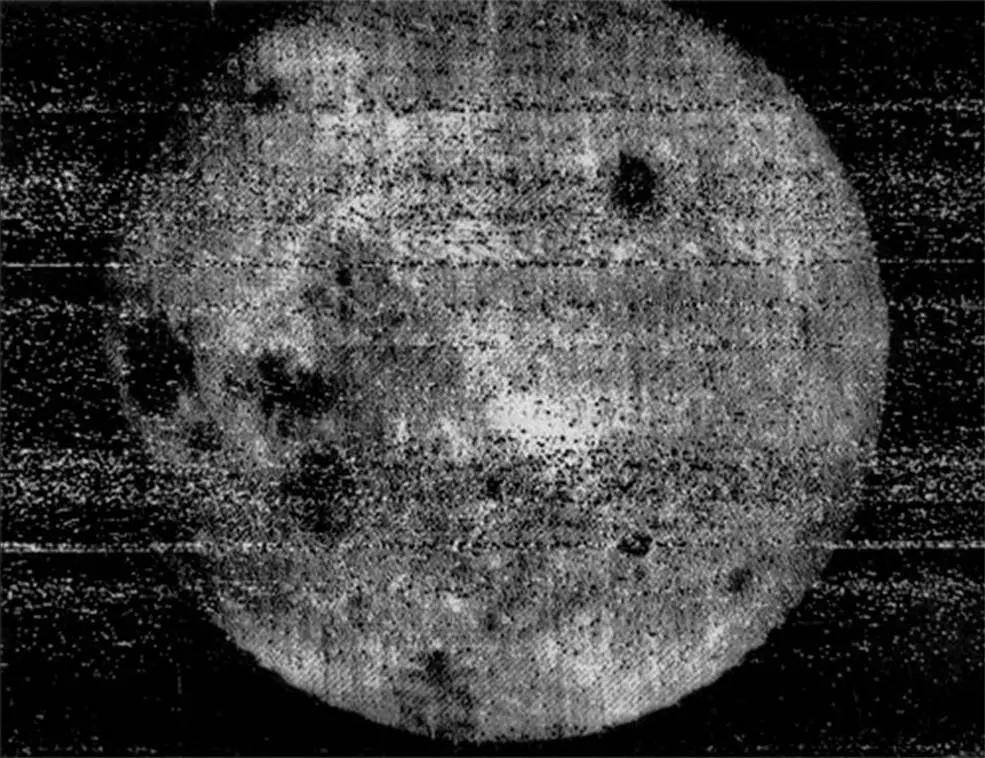
The Moon is a Harsh Mistress, Robert Heinlein

Luna is a penal colony, a one-way ticket for anyone Earth’s governments want to be rid of. But the convicts are thriving – they and their descendents are “Loonies”, fully committed to life on their rock, with their own cultures and politics. Politics though brings oppression, and simmering discontent with their prison has transformed Luna into a powder keg. When Computer Janitor Manny gets an unexpected return from the Warden’s computer, the fuse is lit. Soon, the banners of revolution will be unfurled…
I did it! We’ve been doing this series for a year and a half, and I’ve finally recommended Heinlein. This is my favourite of the weird and frequently dodgy Heinlein oeuvre, a fairly standard SF adventure story bolted to an anthropology of Lunar Society, a guide to how to create a telephone-based revolutionary cell network and with only a slightly grating authorial self insert. It sounds like it shouldn’t work, but it unquestionably does. The political stuff elevates the adventure story (in contrast to Starship Troopers) and there’s a real sense of a possible society that pervades every page. It’s a great example of one of my favourite ways SF explores worlds – set them up, let us explore them, then kick them to pieces and see what happens.
There is a caveat with Moon is a Harsh Mistress though. The characters are a little (or a lot-le) two dimensional, characterisation of women and (particularly) people of Indian and Chinese extraction can be problematic (some language that has long since passed out of common use) and there is, as often with Heinlein, a few lines that make you stop to consider what he thought of age of consent laws. Unlike many other Heinlein novels though, these are few and far between. It’s a mid 60s Scifi novel written by someone who had some complex, occasionally offensive, and often deeply fucking weird, views, but as far as Heinlein goes – this is probably as non-weird as it gets.
Rogue Moon, Algis Bundrys
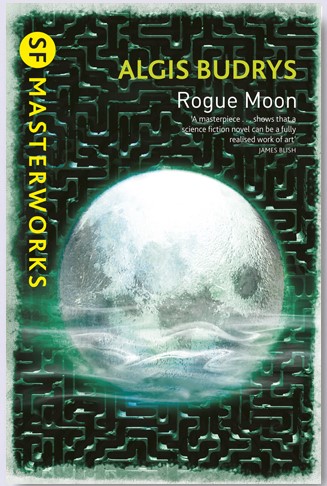
Eminent and driven scientist Dr Hawks works on a top-secret Lunar project – a strange labyrinth machine that seems to have one purpose: the murder of anyone who enters it. Plumbing the depths of the labyrinth may uncover its secrets, but who could be capable of experiencing death time and time again? Enter Al Barker – adventurer, daredevil, adrenaline junkie and the perfect man to enter (drumroll) the Rogue Moon.
Golden Age pulp styling meets the very beginning of the new wave – sex, death, and power meets weird alien technology, impenetrable mystery, and a puzzle that drives men mad. It reads like the pacy short story that it is and drives straight through to a strange and thought provoking conclusion. It’s a fantastic example of its period and kind, exploring what death means – and does – through a pared back style that snarls off the page. It’s a different way of doing weird scifi horror where there’s nary a non-euclidean angle in sight, but alien mystery still pervades the very human interactions back on earth.
Another one with a caveat to it – Rogue Moon is very early 60s and the attitudes to women are a product of the times. It’s not kind, or respectful, of the woman at the heart of the story. Women are peripheral to the stories of the men, unless they’re doing something – like having agency – that throws the carefully ordered scientific world of serious men doing manly things into chaos.
The Hidden Side of the Moon, Jo Russ
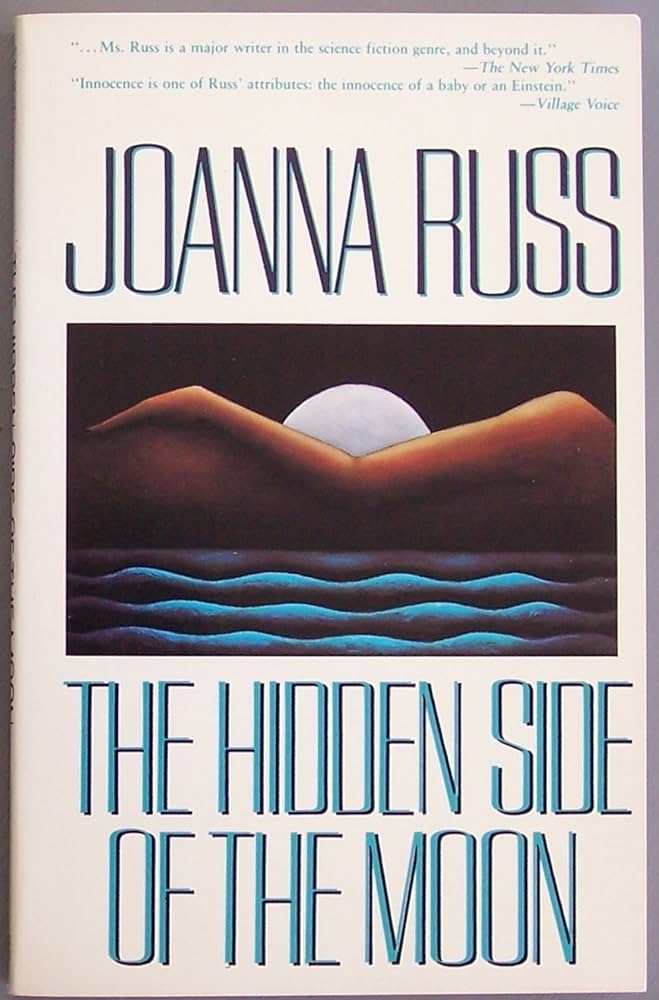
A short story collection of incredibly varied stories – urgent, sharp micro-fiction, genuinely funny comedy SF (that rare beast), sad and deep meditations on life and death – spanning the entire length of Jo Russ’ career. So much of her work was sharp and angry (and as I’ve mentioned before, rightly so – much to be angry about). That voice is here, but there’s also a gentler, funnier and softer side. We have touching introspective SF (The Little Dirty Girl), full on horror (I had Vacantly Crumbled it into my Pocket…), excellent SF meta-commentary (The Cliches From Outer Space) and love (The View from the Window). All of it brilliant, and every story worth reading no matter the length or lack of.
You skip around a lot, because these are very (occasionally very very) short stories, so tonally it’s a real trip. It’s another one – like We Who Are About To, or Female Man – where I just cannot understand why Jo Russ isn’t hailed as among the best, if not flat out the best, SF author of her generation. As a writer she is better than nearly everyone else working from the late 60s to the 80s, conceptually her work is equal to the “great names”, and emotionally she stands virtually alone. Noone, not a one, manages to combine the writing, the concepts and the emotion like Jo Russ. We Who Are About To… remains, in my view, the definitive work, but Hidden Side of the Moon shows the variety and wonder that Russ could conjure. It’s a hard one to get, now, but there’s second-third-fourth hand copies floating about. It’s well worth picking up.
The moon doesn’t take on a starring role, but it’s my article series and I’ll break format if I want to.
Black Library Pick
There’s a surprising dearth of stuff in the Black Library about Luna, especially given that much of the science of the Space Marines was ripped from the pages of the Luna Gene-Witches. When we do go to the moon, there’s always a melancholy about it, one of the first cultural casualties of the Great Crusade, a haunted den of science and witchcraft long since shackled to the will of the God-Emperor. Bloody love a bit of melancholy, me.
The Watchers of the Throne – Chris Wraight
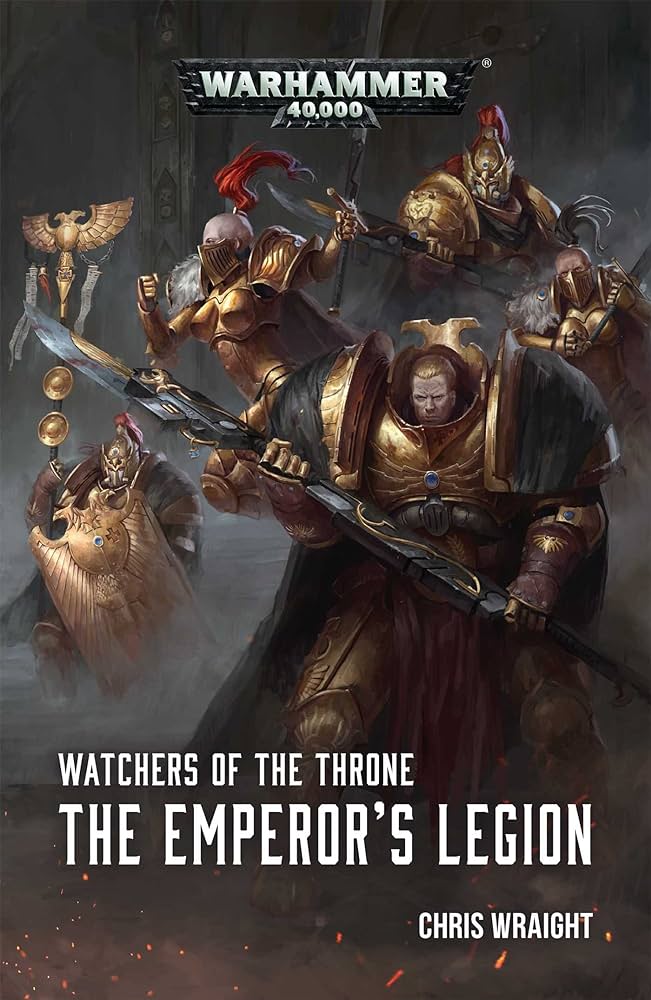
The Custodian Guard are the ever-vigilant sentinels of Terra, protecting the rotting God-Emperor on his Golden Throne from threats from within, without and beyond. Their watch has lasted ten thousand years, but with the galaxy changing around them, how long can they stand alone?
Wraight is one of the new masters of 40k fiction, cracking out some incredible reads over the last few years. He’s fantastic at politics, skulduggery, mystery and all the standard bolter and blade action, and nowhere better (perhaps – Warhawk is very very good) than in his series of books based on Terra. The Watchers of the Throne and the Vaults of Terra series are among the very best works to come out of the Black Library, and both get a massive unhesitating recommend from me. The Emperor’s legion crowbars its way into this month through the relentlessly awesome Aleya, Anathema Psykana and (for the purposes of this article at least), frequent moon-visitor.
While Custodian Valerian is certainly interesting, Aleya is the funny, spiky, melancholy and ferocious heart of the series, playing a perfect foil to the straightest-of-straight-men Valerian. In both Emperor’s Legion and Regent’s Shadow, Aleya spends significant time on the moon, revisiting the old fortress of the Anathema Psykana. Aleya’s moon is a haunted, ghost-filled place, one draped in dust and silence as a mourning shroud for the Imperium-that-was. Far from the bustling gene-factories and shipyards is a sorrowful, abandoned moon, one that (pleasantly!) reminds you of many happy hours spent shooting Hive and Fallen in Archer’s line. The dying moon shows how far the Imperium has fallen, that even earth’s cheery little satellite is little but a shell for the final acts of a tragedy.
___
Next time: Old World Altdorf Guard Blues
Comments, questions, suggestions? Wondering what amusing-only-to-me “joke” I’ll come up with now that I’ve finally recommended a Heinlein novel? contact@goonhammer.com or leave a comment below
